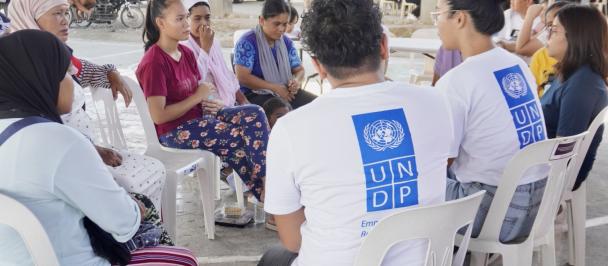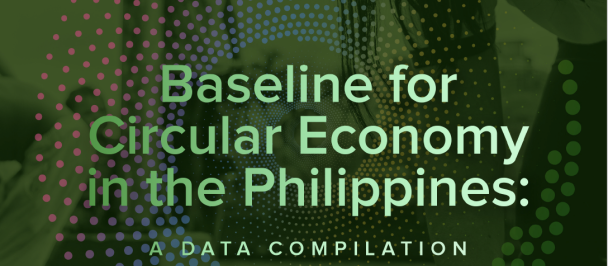Local Governments in the Philippines Gear up for Circular Economy Transition through EU, DENR, DILG, and UNDP support
April 30, 2024

Circular economy continues to gain momentum in the Philippines as collective action and partnerships at the local level take center stage.
Through the European Union-Philippines Partnership for Green Economy, a program led by the Department of Environment and Natural Resources (DENR) with EUR 60 million funding from the EU, UNDP together with the Department of the Interior and Local Government (DILG) co-organized an Inception Workshop with partners and stakeholders under the Green Local Government Units (LGUs) Project in Quezon City.
The workshop marks the crucial starting point to ideate circular ideas that partner LGUs can carry out over the next 4.5 years, to support their collective and inclusive journey towards a green and circular economy. This circular economy discourse also serves as the partners’ contribution to the DENR-led observance of Earth Day 2024 under the theme ‘Planet VS Plastics,’ as circular economy is recognized as one of the most effective means to solve the plastics problem.
During the workshop, DENR Undersecretary Jonas Leones emphasized how DENR is honored to spearhead the overall Green Economy Program in the Philippines (GEPP). He further noted that the transition to a circular economy requires concerted efforts from all sectors of society – government, private sector, civil society, and individuals. Circular economy can likewise enhance the resilience of LGUs and communities as emphasized in a message from Department of the Interior and Local Government (DILG) Assistant Secretary Lilian De Leon.
LGUs are seen as the frontrunners in driving change at the community level. They are hotbeds for innovative solutions for future-proof circularity and multiplier effects with their policy, entrepreneurial and fiscal autonomy.
“It is great to see LGUs dedicated to accelerating local circular actions as their contribution to the green economy trajectory of the country. The EU is ready to support you on this way and we look forward to establishing many new partnerships under this Global Gateway Flagship,” said Christoph Wagner, Head of Cooperation of the Delegation of the European Union to the Philippines.
Accelerating the transition to circular economy at the local level comes from the recognition that clean-ups and traditional waste management practices are no longer sufficient to address the triple planetary crisis posed by climate change, biodiversity loss, and pollution. Circular economy is founded on the belief that a truly sustainable pathway begins with a re-examination of how production and consumption can be made circular, to replace the wasteful take-make-use-dispose linear model.
UNDP Philippines Resident Representative Dr. Selva Ramachandran further noted that: “This event marks the beginning of the strengthened cooperation with LGUs to advance the transition to a circular economy. We thank the EU, as well as DENR, DILG and other stakeholders for making this endeavor happen.”
The workshop is the first of a series of activities for Green LGUs project team and partners to co-design innovative ideas suited to each local situation. The activity likewise highlights the significant, yet often untapped resources, expertise and passion of our non-LGU stakeholders such as the youth, women’s groups, CSOs, informal waste sector, MSMEs, obliged enterprises, national government agencies, and other champions to explore greater partnership opportunities with LGUs and each other.
The Department of the Interior and Local Government (DILG) and the United Nations Development Programme (UNDP) are co-leading the implementation of the Green LGUs Project component of the GEPP, which will support 60 LGUs all over the Philippines in their transition to circular economy over a 4.5 year period.
Funded by a €60 million (Php 3.67 billion) grant from the European Union, the Green Economy Programme of the Philippines (GEPP) will run from 2023-2028 in collaboration with the national government, local government units (LGUs), and the private sector. The Programme links European and Filipino partners to foster a circular economy and the reduction of plastic waste. It also aims to improve energy efficiency, promote renewable energy use and climate change mitigation and adaptation. Using a whole-of-nation approach, the programme is focused on sustainable and inclusive growth through investments and jobs creation. GEPP is implemented by UNDP Philippines, Germany's development agency GIZ, Expertise France with Global Green Growth Institute (GGGI).

 Locations
Locations







